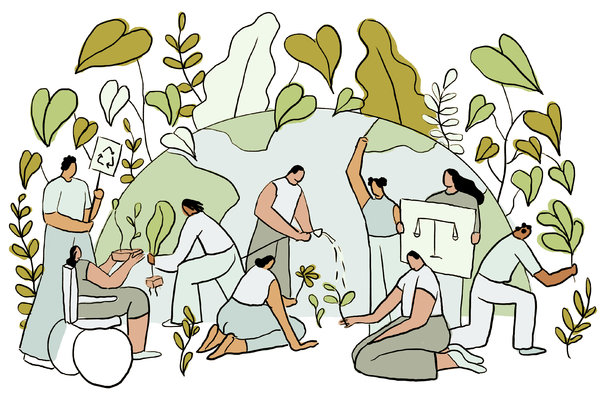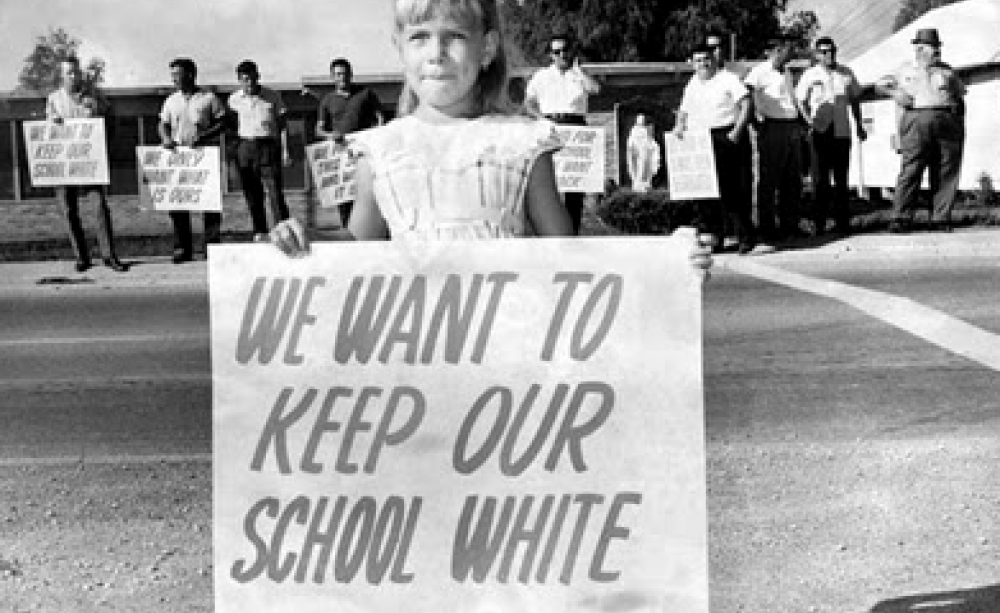
Once a month, we put together a list of stories we’ve been reading: news you might’ve missed or crucial conversations going on around the web. We focus on environmental justice, radical municipalism, new politics, political theory, and resources for action and education.
We try to include articles that have been published recently but will last, that are relatively light and inspiring, and are from corners of the web that don’t always get the light of day. This will also be a space to keep you up to date with news about what’s happening at Uneven Earth.
Following the killing of George Floyd, one in a long line of brutal murders of Black people by police, anti-racism protests have swept across the US, and conversations about structural racism and police brutality have dominated the global media. We decided to use this momentum to highlight educational readings and resources on anti-racism, police abolition, and the connections between racism and environmental issues.
In other news, this month, we launched a new section on our site: the Resources for a better future glossary! We kicked it off with Eleanor Finley’s entry on Human nature, which we linked below. In this month’s list, we also included analyses of where we’re at and where we’re going with regards to the COVID-19 pandemic, and, as usual, we collected a variety of readings and resources about new politics, cities and radical municipalism, degrowth, and activism.
Uneven Earth updates
We launched Resources for a better future – a glossary of crucial concepts in political ecology, alternative economics, and environmental justice. It offers easy-to-read, clear, and opinionated explainers of some of the most important political and ecological issues of our time.
Human nature | In the first entry of our new glossary, Eleanor Finley argues that there is no human nature, only human potential
Crisis Collage | How do we move ahead now?
Planet of the dehumanized | Environmentalism that does not center structural inequality is a dangerous nod to both eco-fascists and eco-modernists alike
Top 5 articles to read
Reimagining a world where justice is possible. “It was none other Martin Luther King Jr. who said, “injustice anywhere is injustice everywhere.” We live in a world where robbing entire classes and societies; manufacturing and trading ever deadlier weapons; poisoning the air, earth, and water; torturing or wiping out entire species; etc. are the alphabet of power. The justice of such power cannot be anything but a hellish nightmare for those who are born into the margins. Such a world will always be racist, regardless of the humanist sentiments of the majority.”
Unlearning: From degrowth to decolonization
Racism, police violence, and the climate are not separate issues
We don’t farm because it’s trendy; we farm as resistance, for healing and sovereignty. Farming is not new to Black people.
We defend ourselves so we can all breathe in peace
News you might’ve missed
Brazil: Deforestation on Indigenous lands increases 59% in the first months of 2020
East Africa facing ‘triple threat’ from coronavirus, locusts and flooding, Red Cross warns
Land conflicts flare across South-East Asia during coronavirus lockdowns
Resources on anti-racism and police abolition
Understanding structural racism, and how to fight back
Geographies of racial capitalism with Ruth Wilson Gilmore. A short film.
A Twitter thread filled with revolutionary books that can guide us during this time, a collection of Black revolutionary texts, and Frantz Fanon’s writings
Black Socialists of America resource guide
‘Racism dictates who gets dumped on’: how environmental injustice divides the world, and more in this series: Our unequal earth
‘They chose us because we were rural and poor’: when environmental racism and climate change collide. The environmental movement has a long history in America’s south – yet people of color and impoverished communities continue to face dangerous pollution.
Black environmentalists on climate and anti-racism
Coronavirus: its impact cannot be explained away through the prism of race. “Race is a social construct with no scientific basis. However, there are clear links between people’s racial groups, their socioeconomic status, what happens to them once they are infected and the outcome of their infection. And focusing on the idea of a genetic link merely serves to distract from this.”
The violence of, and alternatives to, policing
The George Floyd killing in Minneapolis exposes the failures of police reform
The end of policing. According to Ruth Wilson Gilmore, this free eBook available on Verso “combines the best in academic research with rhetorical urgency to explain why the ordinary array of police reforms will be ineffective in reducing abusive policing. Alex Vitale shows that we must move beyond conceptualizing public safety as interdiction, exclusion, and arrest if we hope to achieve racial and economic justice.”
Reading towards abolition. A reading list on policing, rebellion, and the criminalization of Blackness.
Abolition study. A list of readings and resources.
Just think about it…
During coronavirus, is ‘wellness’ just being well-off?
Why social isolation is part of Amazonian Shamanic practices
My first lockdown was during the first Intifada. Living under a lockdown in Europe has brought back memories of my childhood in Gaza during the Palestinian uprising.
Internationalism in Vietnam, then and now. Building on the traditions established by Ho Chi Minh.
What is energy denial? A text from 2019 about “clean energy danger denial” – the tendency that we overlook the hazards of renewable energy production because fossil fuels are so bad.
The wildness is in me, too. People were excluded from the wild, historically, and in today’s rapidly digitizing West.
How ‘sustainable’ development ravaged the Congo Basin
The ugly underbelly of veganism in India
The final frontier. On why US culture is so obsessed with conquering space.
The wife glitch: Household tech makes women’s work profitable—for men
Where we’re at: analysis
Hope against hope. An Interview with Out of the Woods on COVID-19, climate crisis, and disaster communism.
Favela journalists debate ‘mistakes the press are making covering coronavirus in favelas’, the latest in RioOnWatch’s article series on Coronavirus in the favelas
Coronavirus in Rojava: Facing a pandemic without a state
Counting corona losses in Africa
The solution to the coronavirus recession is a global Green New Deal. A healthy, socially, and ecologically just world demands it.
How new is the Green New Deal for the Global South?
The ‘green’ new deal should not be a new imperial masterplan
Real reconciliation starts with fair economics
Lawless ocean: The link between human rights abuses and overfishing
Canada’s forests remain under threat — and the clock is ticking for governments to step up
The impulse to garden in hard times has deep roots
New politics
Public abundance is the secret to the Green New Deal
Reviving Indigenous authorities in Guatemala
Indigenous leadership points the way out of the COVID crisis
Coronavirus and the life lessons from “ordinary” people to save the Earth and ourselves
Organizing is not about getting people to agree with radical ideas
Permanently organized communities
Cities and radical municipalism
How cities are clamping down on cars
Emancipatory mutual aid: from education to liberation. A New Orleans radical mutual aid group organizes with and within communities to help transform the conditions that created the crisis in the first place.
The problem with forcing developers to provide open space. On urban design and failed green spaces.
Kowloon Walled City. In Hong Kong, it was the densest place on Earth.
Degrowth!
How GDP fetishism drives climate crisis and inequality. Jason Hickel discusses degrowth on the Citations Needed podcast.
Techno-socialism or de-growth? The second in a three-part interview on capitalism and climate breakdown from Political Economy for the End Times.
Fairytales of growth. A film on climate change, degrowth, and system change.
Resources
26 ways to be in the struggle beyond the streets
Mapping our social change roles in times of crisis
Ethnography and the struggle for social justice. Didactic video resources on how ethnographic research can be used to strengthen social justice struggles, with the Brazilian urban movement Lutas Pela Moradia no Centro da Cidade (with English subtitles).
A list of political ecology-themed podcast episodes
HackΑthens 2020 recommended readings on urbanism, cities, architecture, history, and arts from a degrowth perspective, and in the context of pandemics
22 films to watch after (or instead of) Planet of the Humans
Timothée Parrique’s Twitter account, where he shares lots of useful information and resources on degrowth
Food fermentation in Northeast India
Agroecology in Cuba, a film with English subtitles
Want to receive this as a newsletter in your inbox? Subscribe here.
